
Mon-Fri 9am-5pm
Talk to our friendly electric car leasing experts now: 01942 910 001This website uses cookies to ensure you get the best experience. Learn more
Electric Cars and Businesses - what do you need to know about charging?

What do you need to know about charging your electric car in your business?
Moving a fleet, small or large, across to purely electric vehicles involves some thought and consideration. It’s easy to over-simplify the process and choose headline figures or stats which suit your argument, without really educating your customer database on what to expect as they move into lithium-ion tech.
But, not all leasing brokers and fleet management companies are doing this and, with the support of some great companies like Diode, more detailed information is being provided. One of the key issues, and sometimes obstacles, to the electrification journey is charging. By this we mean the availability of charge points at employee’s homes, the workplace and out in the public network; the absence of these may dampen the enthusiasm of some company car drivers to enjoy the benefits of zero-emission transportation.
Charging your business EV at home is without a doubt the easiest solution. And unsurprisingly this is where most electric car, or van, users will perform their charging undertaking. Various stats have been profferred on this subject with many revealing that the majority of drivers do charge their vehicles at home, with evidence from Zap Map suggesting that 84% of drivers CAN access a charge point at home.
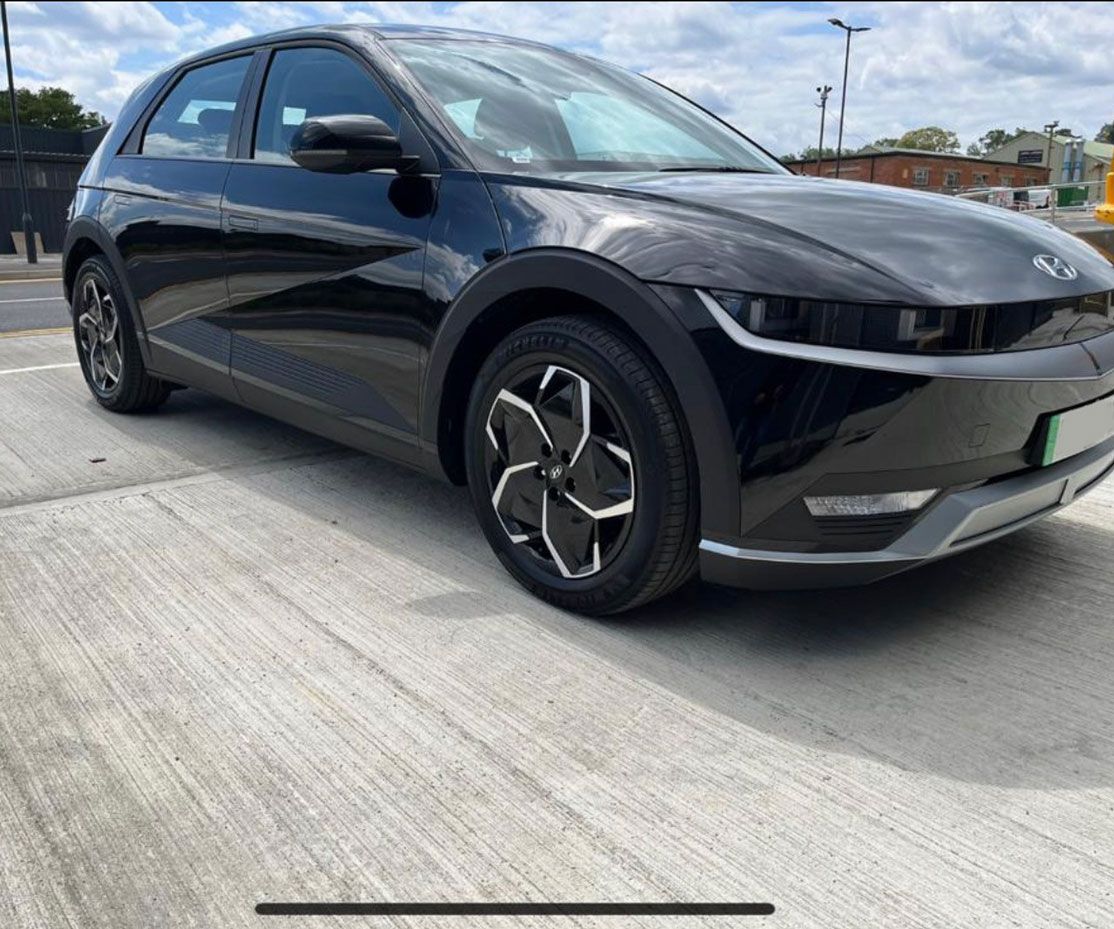
If you do enjoy off-road parking, the provision of a charge point is pretty easy, with companies like Rightcharge now allowing you to price compare the various units on the market in the UK. Their system is pretty simple, in that you enter your car and postcode, so that you can be provided with practical charge point solutions plus an introduction to a company who will be able to install this for you.
Additionally, some energy companies, like OVO, do offer energy plans + charge point, with their “Charge Anytime EV” package. Specific tariffs are important, as this usually allows for cheaper overnight charging on your EV for example 10 pence per kWh instead of the maximum 34 pence.
While this may not sound like a lot of money, using our “living with your …” tools, you quickly see the significance. Taking the Hyundai Ioniq 5 pictured here, with a 58 kWh battery, to charge at 34p would equate to £25.16 to fully charge compared with £7.40 on a 10p rate!
The process for many domestic EV fleets is fairly simple. The only consideration will be about the installation costs and ongoing fuel rates between employer and employee. We cannot, to be clear, add the cost of a charge point installation to a contract hire agreement. The reason for this is that in adding the charge point to the agreement could pass responsibility of the equipment to the leasing company (we are the broker, not the lender), so any finance on equipment must be arranged separately.
While an employer may fund the charge point and the installation costs, this is something which needs reporting and could create a taxable situation, so do check with your accountants. On fuel rates there is an Advisory Electricity Rate of 5 pence per mile BUT electricity is not considered a fuel for car benefit. What this means is that private fuel for an EV is not subject to the taxable benefit you have with combustion (£27,800 for April 2023), so any workplace charging is fine. However, for employees claiming on the mileage (for home charging most likely) do note the 5 pence per mile which is somewhat low. Very few EVs, based on their efficiency and charge costs, will be at 5 pence or lower.
Workplace charging is another aspect which may be investigated by some fleets / employers.
For those drivers who do not have domestic charging, for example those who do not have off-road parking or who live in flats or tenanted accommodation, supporting the driver is important. There are now a number of great companies who can help improve your charging infrastructure, like Raw Charging , and they will help you to organise this alongside the last of the Government Grants which is £350 for up to 40 sockets.
Where an employer has a big car park, and a growing EV fleet, this is really something which is necessary. The important considerations, other than cost, will be the types of charge points. AC, or slower charging, is most commonly adopted due to the cost and types of charging sessions they employ. However, there are different speeds offered - 7kW, 11kW and 22 kW - by many charge point installation companies.
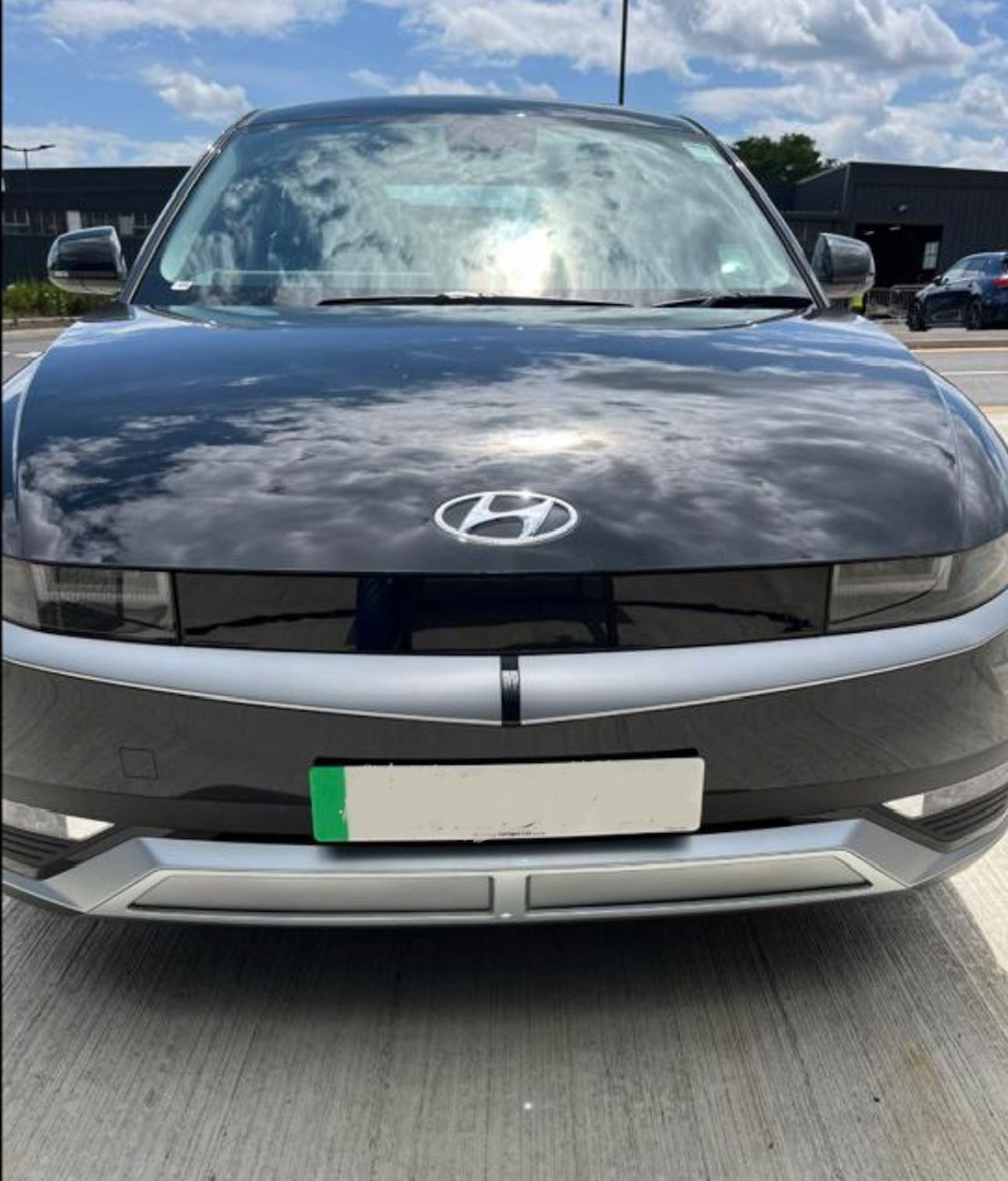
Just to be clear, EVs have different charging capabilities and you should be educated on what your drivers can achieve with their vehicle, as this is key to understanding charging times. For example, the Ioniq 5 shown here can utilise 11kW AC charging, which equates to 8 hour 0 - 100% times. If you connect it to a 7kW option, this would take nearly 12 hours to achieve the same. More and more EVs are moving to 11 and 22 kW AC charging, so this may persuade you on the charge point investment. AC is much cheaper to install than DC options.
Are there enough public electric car charge points?
High-mileage company car drivers, and those without regular domestic or workplace charging, will have to rely on the public network. This just isn’t service stations but supermarket, leisure facilities and hotels will now have charging facilities in place. At the end of June 2023, there were some 44,408 devices in 25,521 locations across the UK (see - https://www.zap-map.com/ev-stats/how-many-charging-points). As reported, this is a 36% increase in the total amount of devices since 2022.
But quality is not everything and the quality / reliability of public charging has been under question. So much so, that the UK Government has now outlined in their Public Charge Point Regulations 2023 that the standards, reliability, pricing and payment must be improved. Not unlike the AC synopsis above for workplace charging, the DC (rapid) charging in the public network needs review. Not every EV will charge at the same rate, with there being anywhere from 40kW DC to 350 kW DC capabilities.
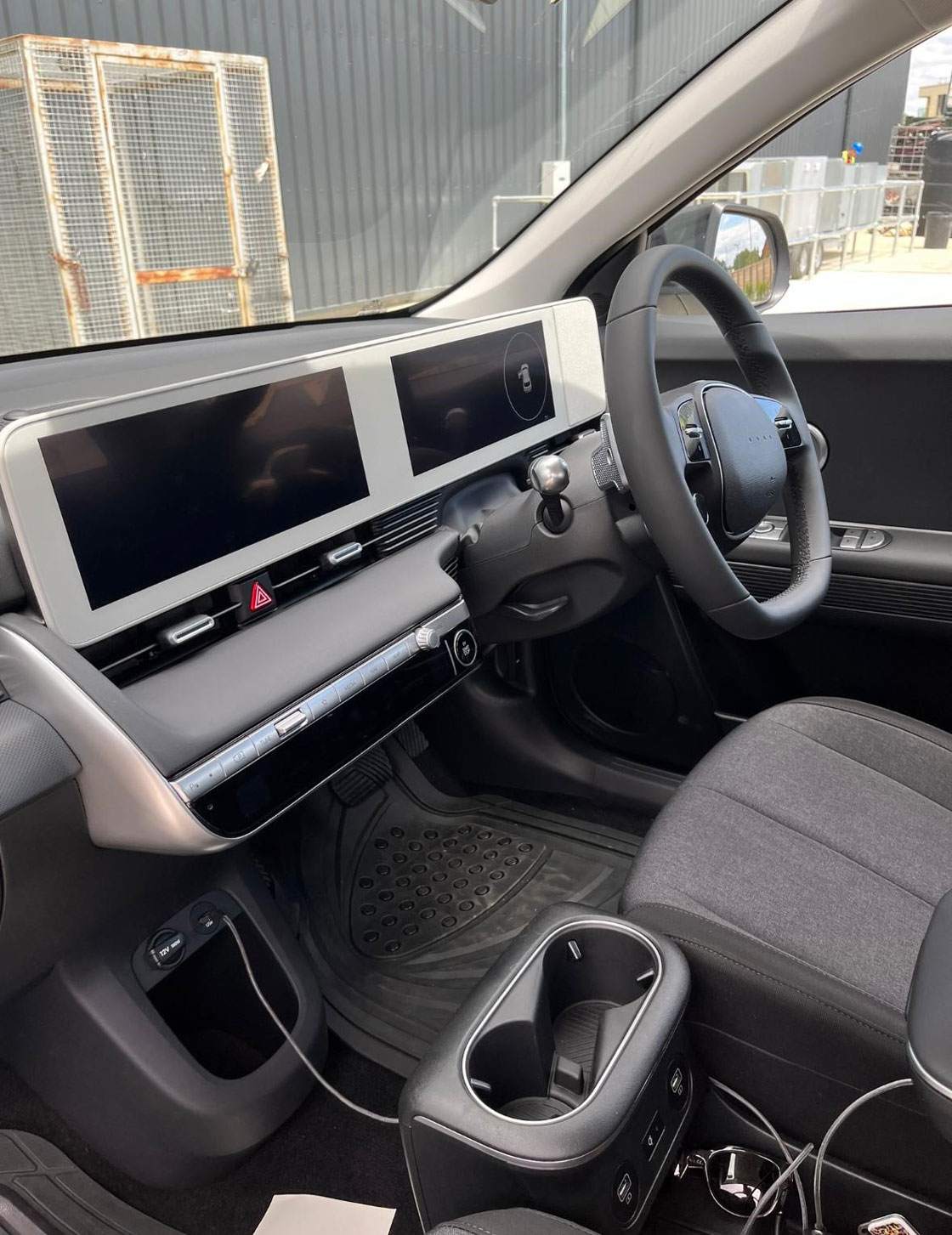
To add more complexity, the speed of the DC solution will often dictate the price per kWh, which again influences charge cost and cost per mile (relevant where driver having to claim back at 5 pence per mile). This is why the rate on your EV needs to be understood, so you a) connect to the appropriate point; and b) appreciate charging time / cost. Frustration on charging arises a lot of the time because of a lack of understanding and education, much of which can be overcome.
To help the e-car business and fleet leasing customers receive the suitable solution, every quotation will be accompanied with our leading innovation - the EVC™ - which is a robust certificate for explaining how the car will perform and for assisting the customer to organise the key services, like charging their EV at home / work or on the public network. An example can be reviewed below:
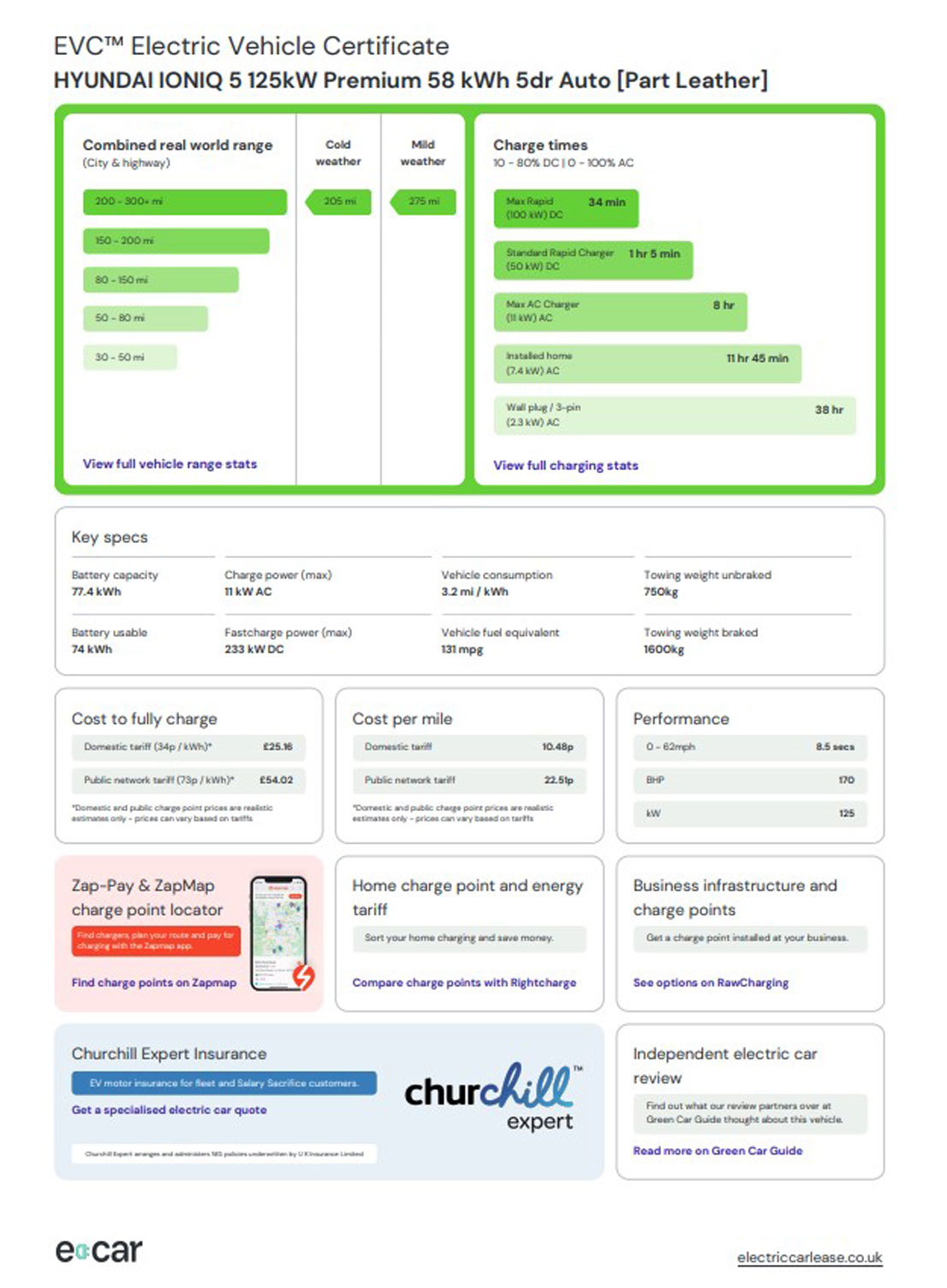
In terms of the car shown, the Hyundai IONIQ 5 ELECTRIC HATCHBACK 125kW SE Connect 58 kWh 5dr Auto (Pure Electric Vehicle), this is based on the following configuration:
• Pearlescent paint
• Obsedian black interior trim
• Cloth - Eco grey
• 19" alloy wheels
• Charging cable - 7 pin type 2
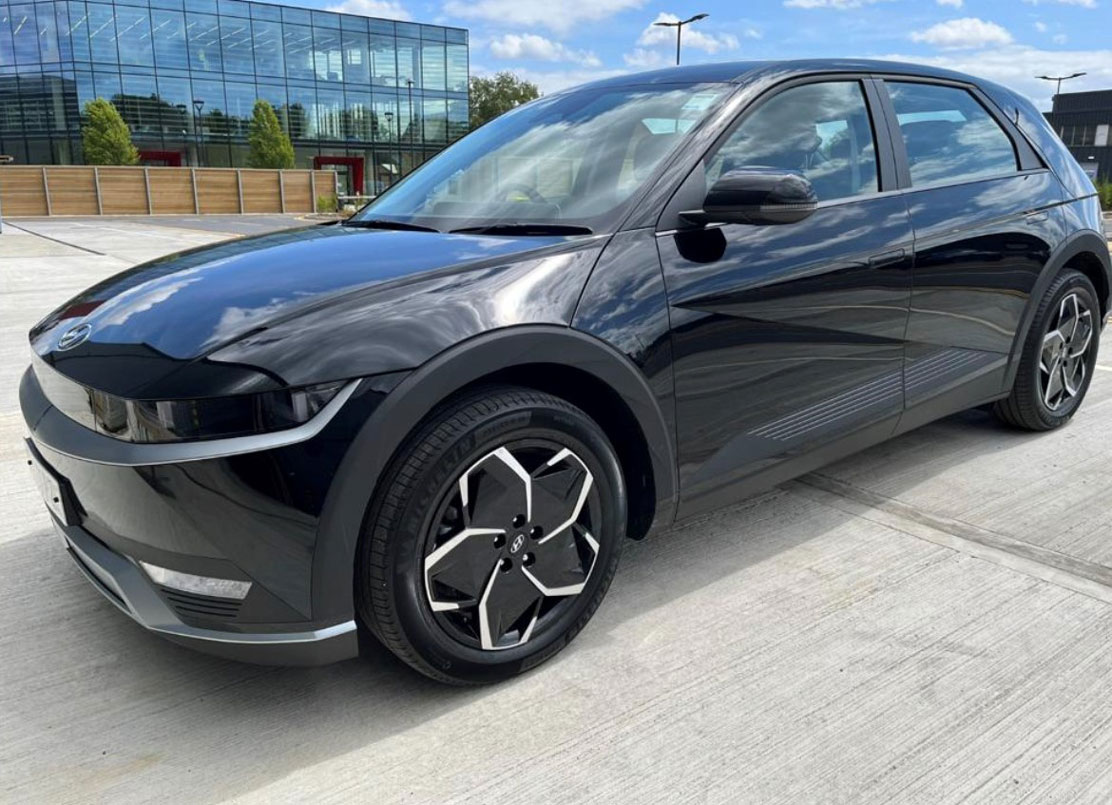
This RWD hatchback will have a 54 kWh usable battery which will offer 0 – 62 times of 8.5 seconds, 115 mph top speeds and 125 kW (or 168hp). Expect a combined winter range of 155 miles with warmer weather allowing for 210 miles. On charging, the 11 kW AC max will allow 6 hour 0 – 100% charging times with the 175 kW DC maximum allowing 17 minute 10 – 80% times. A cargo volume of 531L is available with this family-friendly EV. It has a vehicle fuel equivalent of 139 mpg. An Ioniq 5 has V2L capability, with up to 3.6 kW AC from the interior and exterior outlets.
And our business leasing customer, from Donnington (Newbury) truly enjoyed their service from the team with this fabulous Trustpilot review below: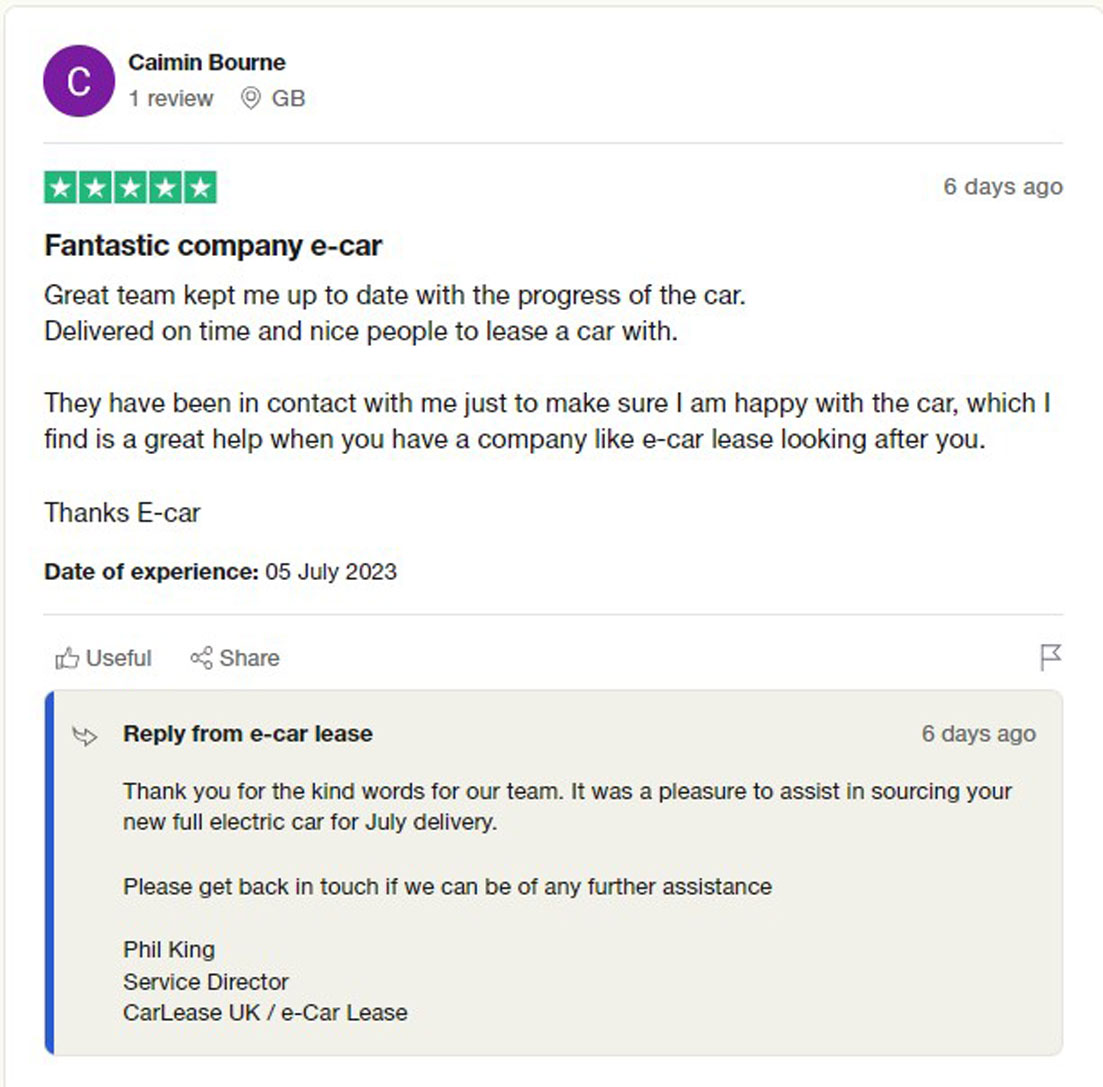
e-car lease work alongside these select finance companies:





e-car lease have a partnership and affiliation with:



Register & get new deals weekly
 Exclusive offers
Exclusive offers
 Electric-only deals
Electric-only deals
 Never miss out
Never miss out

Talk to one of our experts
01942 910 001 Email us© Copyright 2025 e-car lease. All rights reserved. e-car lease is a trading name of CarLease (UK) Ltd, e-car lease is a credit broker and not a lender. We are authorised and regulated by the Financial Conduct Authority. Registered No: 706617. BVRLA Membership No. 1471. Registered in England & Wales with Company Number: 09312506 | Data Protection No: ZA088399 | VAT No: 200422089 | Registered Office: Kings Business Centre, Warrington Road, Leigh, Greater Manchester, WN7 3XG
Made by morphsites®














